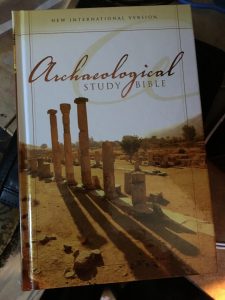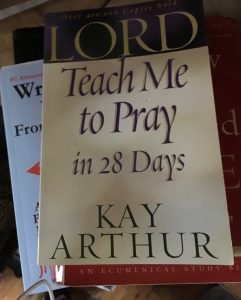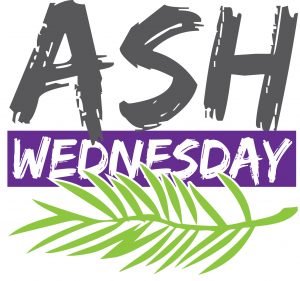We’ve been hearing a lot about “Privilege” lately. It’s been thought provoking for me. If it hasn’t for you, if you’ve rejected the concept or just ignored it, then you are coming from a place of privilege. I know that I am privileged in many ways, in some others not so much. I also know what privilege looks like from the other side because I’ve been there.
When I decided this subject should be my next post, the first thing I did was go looking for a dictionary definition. The fact that I had so many sources easily available is another sign of privilege.
“A separate and personal advantage.” From the Webster’s abridged edition that I keep on my desk.
“A right or benefit that is not available to everyone. 2. the advantages enjoyed by an elite group.” From the Microsoft Encarta Dictionary that was a required book for one of my college courses.
“A special or peculiar benefit, favor, or advantage. 2. An exemption or immunity by virtue of one’s office or station.” From the Funk and Wagnalls Standard Desk Dictionary that lives on my reference book shelf.
“A right, immunity, or benefit enjoyed only by a person beyond the advantages of most.” from dictionary.com
Then I began to make a list of all the ways I know that I, personally, am now and have always been privileged. It got very long. As I thought about it, I realized there are also ways that I am privileged now, but wasn’t always. There are even ways that I used to be privileged that no longer apply.
As I was leaving home to day to pick one of my toddlers up from preschool, I was still mulling over the subject and saw a perfect example of a complexity of two. I was backing out of my driveway in the mini-van I purchased specifically to have room for multiple car-seats, another evidence of my privilege.
As I looked behind me, I saw a young girl, maybe 11 or 12, walking down the sidewalk across from my house. She looked cold and miserable. Her arms tight against her side, hands folded in front of her, strings of blond hair blowing in the chill wind. She was obviously heading home from school, her backpack slung from her shoulders, in the middle of the day. Behind her walked a woman, equally unhappy looking.
I wondered whether she was sick or in trouble. You couldn’t really tell from their expressions. It could have been either. What was evident was that the school had called for someone to come get the child and the woman had no transportation so she had to walk to the school, then back home again. If the girl was in trouble, her situation got worse. If she was sick, she wouldn’t improve walking 6 blocks or more in the cold. She looked at me from the corner of her eyes without turning her head and I had deja vu.
Only I was the one on the sidewalk, waiting in the cold or the rain for a city bus because I didn’t have a car, watching the people in their cars sail past, and feeling such envy, bitterness, misery. For a brief moment, I was right back there and I realized, even then I was enjoying privilege. This small town has no bus system for people who don’t have cars to use. It’s either walk, pay for an expensive taxi or beg rides from others.
I didn’t appreciate it at the time, but I was fortunate to have access to public transportation, to have a job which made it possible for me to afford the bus, and paid for a place to live along with food for my daughter and myself. There are many other people in this country who don’t have those things. Even then, at one of my lowest points, I was enjoying privilege.
There are a million ways that we enjoy privilege every day without noticing. We just take for granted our safe homes, warm beds, hot showers, clean clothes, etc. We walk out our doors without feeling the need to scan the street first to be sure it’s safe. We get into our cars and drive to our destinations without concern for roadside bombs or blitz attacks.
Privilege. I think this is going to be a series. I feel the need to explore all the ways privilege can apply without the person enjoying it even realizing it exists. Some people would claim that they have earned their security and comfort but, as I continue, I hope to demonstrate that being able to earn it is another sign of privilege.
 To truly understand God’s Word requires more than simply reading a convenient copy of it as though it were a history or biography. Ideally, to delve deep and truly understand, we would read the texts in their original languages. For most of us, that is impossible. Even if such copies were readily available to us all, we simply don’t have the necessary language skills.
To truly understand God’s Word requires more than simply reading a convenient copy of it as though it were a history or biography. Ideally, to delve deep and truly understand, we would read the texts in their original languages. For most of us, that is impossible. Even if such copies were readily available to us all, we simply don’t have the necessary language skills. Over the years, I’ve said the Lord’s Prayer thousands of times. I’ve taken part in study groups that discussed it. The consensus being: we frequently tend to simply recite it without thinking about the meaning of the words. The second factor being: it was never meant to be an actual prayer, but an example of how to pray. I was looking for a book that would take this idea and expand upon it.
Over the years, I’ve said the Lord’s Prayer thousands of times. I’ve taken part in study groups that discussed it. The consensus being: we frequently tend to simply recite it without thinking about the meaning of the words. The second factor being: it was never meant to be an actual prayer, but an example of how to pray. I was looking for a book that would take this idea and expand upon it.  Today is Ash Wednesday. I’ve begun my Journey to draw closer to God. I am no expert, but I humbly offer my feelings and interpretations of the current study. The Lectionary readings for today are: Isaiah 58:1-12, Psalm 51:1-17, 2nd Corinthians 5:20-6:10, and Matthew 6:1-6, 16-21.
Today is Ash Wednesday. I’ve begun my Journey to draw closer to God. I am no expert, but I humbly offer my feelings and interpretations of the current study. The Lectionary readings for today are: Isaiah 58:1-12, Psalm 51:1-17, 2nd Corinthians 5:20-6:10, and Matthew 6:1-6, 16-21.